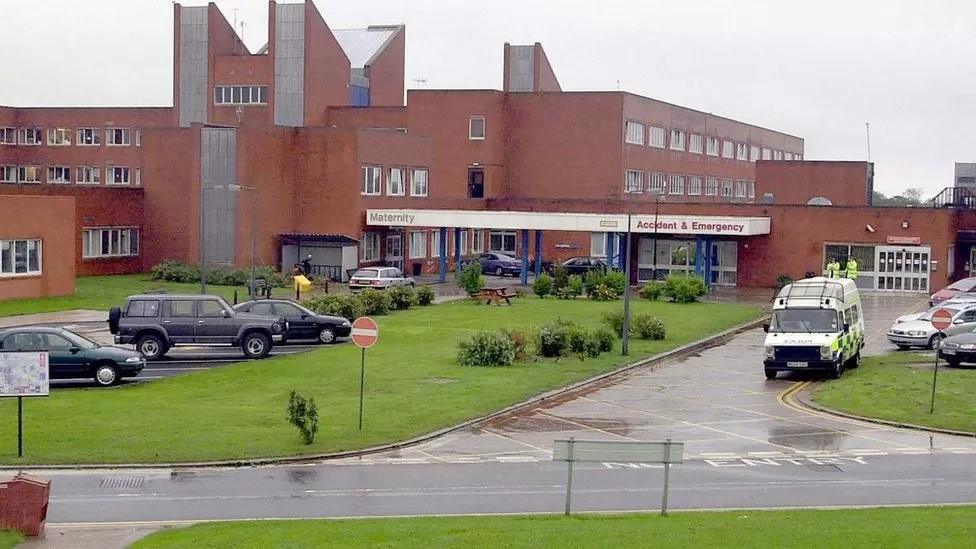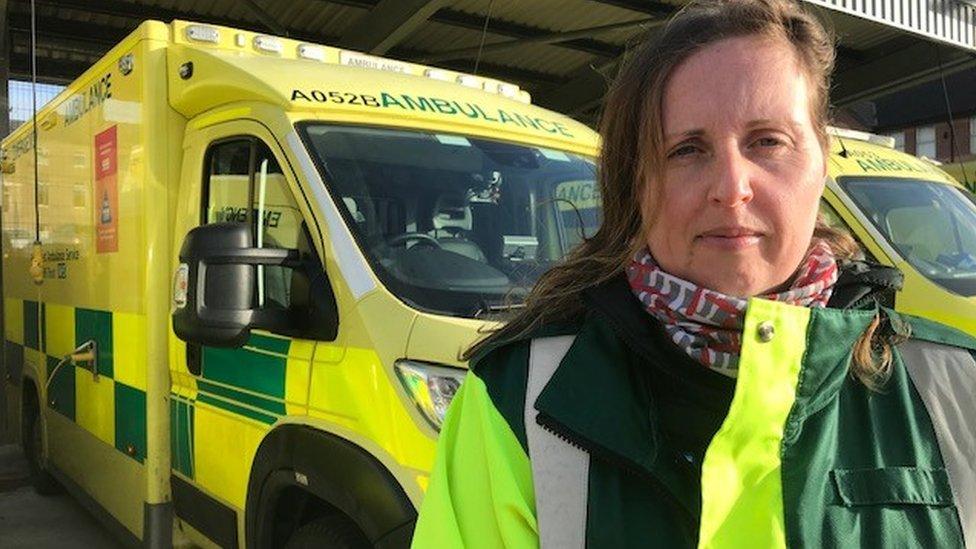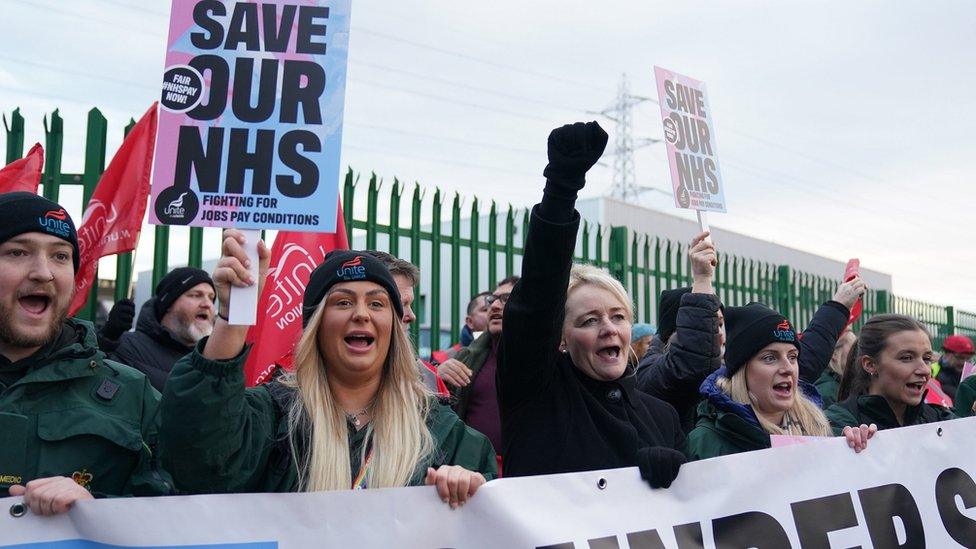South Cumbria: Hospital trust warns public of 'significant pressure'
- Published

The trust which runs Furness General Hospital said people should continue to attend appointments unless told otherwise
A health trust has warned of "significant and increasing pressure" facing all NHS services for south Cumbria.
There are also "exceptionally high" numbers attending A&E and GP practices, University Hospitals Morecombe Bay NHS Foundation Trust said.
It comes as some North West Ambulance Service staff are on strike.
Health Secretary Steve Barclay has criticised unions for walking out when the system was under pressure.
The trust, which covers Lancashire and south Cumbria, including Furness General Hospital in Barrow, said it was experiencing "a sustained increase in demand", external for all services.
It urged the public to call NHS 111 to ensure they are directed to the correct service.
"Our priority, as always, is to ensure safe and high-quality care for people in Lancashire and south Cumbria," it said.
"Irrespective of how busy local NHS services are, and any industrial action, it is essential that people who need urgent medical care continue to come forward - especially in emergency and life-threatening cases, when someone is seriously ill or injured or their life is at risk."

Paramedic Michelle Doherty, on the picket line in Barrow, says patients were being put in jeopardy "every day"
Meanwhile, thousands of ambulance staff in England and Wales are striking over pay and conditions, which saw a walkout of more than 10,000 paramedics, control room staff and support workers who are members of the Unison, GMB and Unite unions.
Ambulances will respond to life-threatening situations.

At the scene
Jennie Dennett, BBC Radio Cumbria
Barrow's ambulance station has been alive with the sound of beeping car horns - not sirens - today.
As drivers passed the striking line of paramedics in florescent jackets, there were plenty of waves and honks of support.
"People have mostly been lovely," one paramedic told me, "but we did get one man shout 'murderers' at us."
Supportive members of the public offered the striking workers snacks and sweets, including five tubs of chocolates.
Those on the picket line will be here until their shifts end, some staying until midnight.

A picket line formed outside Barrow Ambulance Station in Duke Street.
BBC Radio Cumbria's Jennie Dennett said there had been "loads of beeps of support" with the public giving those on strike snacks and tubs of sweets, but one man had shouted abuse as people stood outside.
Laura Milner from Ulverston has been with the ambulance service for more than 20 years and said she had "never known it so bad".
She said paramedics were "frustrated" queueing in A&E for up to eight hours and unable to leave to respond to the most serious emergency calls.
"We are getting calls and going five hours later and people are deceased - it's just so wrong," she said.
"The care system is broken - it just needs money ploughing into it."
Paramedic Michelle Doherty, who is also a representative for the GMB, said it was patient safety and not pay that was the biggest issue for strikers.
"The NHS can't go on the way its going - it is just going to internally combust and there is going to be nothing to help get it back to where it needs to be," she said.
"Everyone is going above and beyond their normal duties to try and help people out.
"Some politicians are saying that today we are potentially putting people at risk but we are still responding.
"They don't understand that because of the way the system's going and the amount of money that they have stripped from the social care fund and the NHS means that patients are getting put in jeopardy every day."
Matt Cooper, from the North West Ambulance Service, said it would be running at about 35% of its usual operational capacity, with the military called in to help.
"We are here for people that are suffering life-threatening emergencies and we would urge them still to call us," he added.
North Cumbria Integrated Care said it had plans in place to manage the impact of industrial action and its "priority is to keep our patients safe".
It said that it was working to keep ambulances on the road by creating additional space in and next to our A&E departments so they were not "held up at our hospitals".
A Department of Health and Social Care spokesperson said most ambulance staff had received a pay rise of at least 4% and further rises were unaffordable.
"We know these are challenging times for everyone and we have given a fair pay settlement that strikes a careful balance between recognising the vital importance of public sector workers whilst minimising inflationary pressures and managing the country's debt," they said.

Follow BBC North East & Cumbria on Twitter, external, Facebook, external and Instagram, external. Send your story ideas to northeastandcumbria@bbc.co.uk, external.
Related topics
- Published21 December 2022
